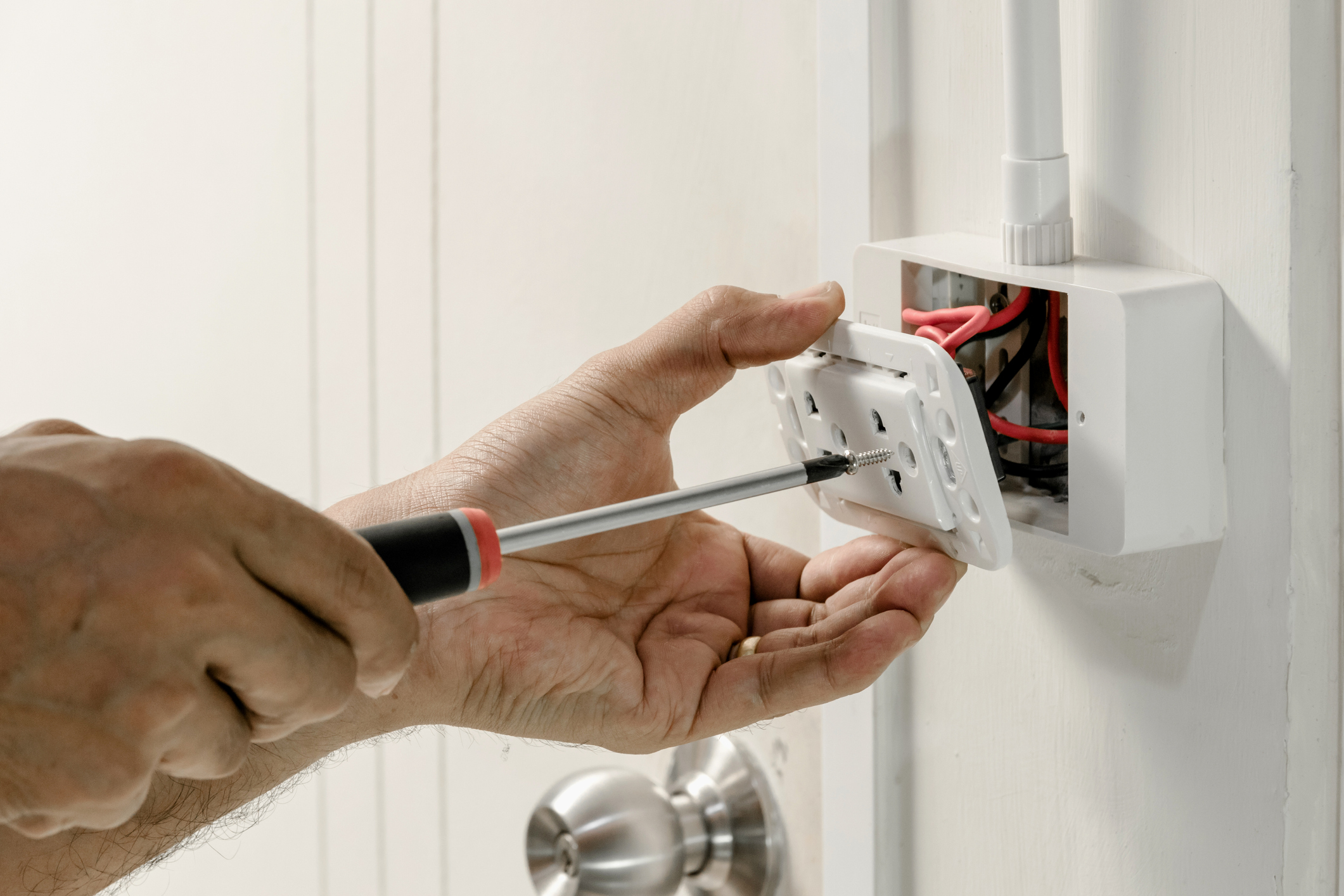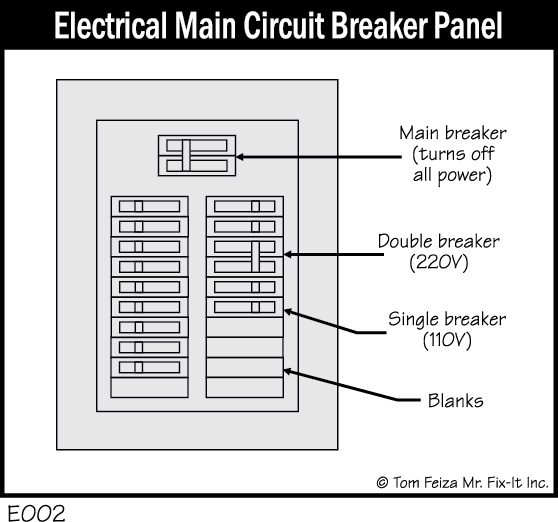Have you ever plugged in your favorite lamp or tried to charge your phone, only to discover the electrical outlet is not working? It can be frustrating and bewildering.
You’re left wondering what’s gone wrong and how you can fix it. Understanding why electrical outlets sometimes fail is crucial, not just for your peace of mind, but also for the safety and efficiency of your home. We will unravel the mystery behind non-working outlets and give you practical tips to identify and solve the problem.
You’ll learn how to tackle the issue confidently, ensuring your home stays powered and safe. Keep reading, because the answer to your outlet woes is simpler than you might think, and it could save you time, stress, and money.
Common Causes Of Outlet Failure
Electrical outlets can stop working due to various reasons. Loose connections, tripped circuit breakers, or damaged wiring often cause issues. Overloaded circuits and faulty outlets are also common culprits.
Have you ever plugged in your phone charger only to find that the outlet isn’t working? It’s a common issue that leaves many of us scratching our heads. Outlets can fail for various reasons, and understanding these can help you fix the problem or decide when to call a professional. Let’s dive into the most frequent causes of outlet failure.Tripped Circuit Breakers
One of the most common reasons your outlet might not work is a tripped circuit breaker. Circuit breakers are designed to cut off power when there’s too much electricity flowing through them. This is a safety feature to prevent electrical fires. If you notice that one particular outlet or a group of outlets isn’t working, check your home’s circuit breaker panel. Locate the switch that’s been tripped; it may not be in the “off” position but somewhere in the middle. Flip it back to “on” and see if that solves the issue.Blown Fuses
In older homes, you may still have a fuse box instead of circuit breakers. Fuses can blow when overloaded, similar to how breakers trip. This can leave your outlets without power. To check, find your fuse box and look for any fuses that appear burnt or broken. Replacing a blown fuse with a new one of the same amperage might bring your outlet back to life. Remember to always turn off the main power before replacing fuses to ensure your safety.Faulty Wiring
Faulty wiring can be a sneaky cause of outlet failure. It’s not only inconvenient but also potentially dangerous. Loose connections or old, fraying wires can interrupt the flow of electricity. If you suspect faulty wiring, it’s best to contact a licensed electrician. They can safely inspect and repair the wiring. Trying to fix it yourself might lead to more damage or even an electrical shock. When was the last time you checked your outlets? Could one of these issues be affecting your daily routine? Taking a few moments to inspect your circuit breaker, fuses, and wiring can save you time and frustration.
Credit: precisiontoday.com
Signs Of Outlet Malfunction
When your electrical outlets stop working, it’s not just a minor inconvenience—it’s a potential safety hazard. Understanding the signs of outlet malfunction can help you prevent dangerous situations and ensure your home remains safe. Let’s dive into some of the common indicators that your outlets might be crying out for help.
Burn Marks Or Scorching
If you notice burn marks or scorching around your outlet, it’s a red flag. This could mean that your outlet is overheating or there’s been a surge of electricity. I remember finding burn marks on an outlet in my kitchen—turns out, the toaster was the culprit, drawing too much power. Check your appliances and cords, and consider calling an electrician to assess the situation.
No Power Flow
When you plug something in and it doesn’t power up, it’s an obvious sign of trouble. But before you panic, check if a circuit breaker has tripped. If everything seems in order and your outlet still doesn’t work, it might be time to replace it. Ask yourself, how many times have you been frustrated by an outlet that refuses to charge your phone?
Buzzing Sounds
Buzzing sounds coming from an outlet are never a good sign. It could indicate loose wiring or a faulty connection. Think about the last time you heard a strange noise from an outlet—did you ignore it? Ignoring buzzing sounds can lead to electrical fires. Be proactive and get it checked out immediately.
Recognizing these signs early can save you from costly repairs and ensure your home remains a safe haven. Don’t let faulty outlets become a ticking time bomb. Pay attention, act swiftly, and keep your home safe and sound.
Safety Precautions
Dealing with electrical outlets not working can be frustrating. It’s crucial to follow safety precautions before attempting any fixes. Proper safety measures prevent injuries and accidents. Understanding these steps can help you stay safe while troubleshooting the problem.
Turning Off Power
Always turn off the power before working on outlets. Use the circuit breaker to cut electricity supply. This step ensures no current flows through the wires. It prevents electric shocks and potential burns.
Using Insulated Tools
Use insulated tools for electrical work. These tools reduce the risk of electric shock. They have a rubber or plastic covering. This covering provides a safety barrier between you and the current.
Avoiding Water Exposure
Keep water away from electrical outlets. Water conducts electricity and increases shock risk. Ensure hands and tools are dry. Avoid working near water sources, like sinks or wet floors.

Credit: misterfix-it.com
Basic Troubleshooting Steps
Electrical outlets not working can disrupt daily routines. Sometimes, the solution is simple. Basic troubleshooting steps can help identify the issue quickly. Follow these steps to restore power to your outlets.
Checking Circuit Breakers
Start by checking your circuit breakers. A tripped breaker may be the cause. Locate the electrical panel, usually in the basement or garage. Look for any switches not aligned with others. Flip the switch back to the original position. This should restore power if the breaker was tripped.
Inspecting The Outlet
Next, inspect the outlet itself. Check for visible damage like cracks or burn marks. Ensure the outlet is securely fixed to the wall. Loose outlets can cause connectivity issues. Tighten any loose screws with a screwdriver. If damage is present, consider replacing the outlet for safety.
Testing For Power
Test for power using a voltage tester. Insert the tester into the outlet. If the light on the tester illuminates, power is present. If not, there might be an internal wiring issue. Testing helps determine if the outlet itself is faulty. Call a professional if wiring problems are suspected.
Advanced Troubleshooting Techniques
Electrical outlets can stop working for many reasons. Basic checks may not solve the issue. Advanced troubleshooting techniques help find deeper problems. These methods require careful attention. Safety is important. Always take precautions when handling electrical systems.
Using A Multimeter
A multimeter measures electrical values. It checks voltage, current, and resistance. First, set the multimeter to measure voltage. Place the probes into the outlet slots. A reading less than expected means a problem. It could be a wiring issue or a faulty outlet. Test other outlets to compare readings. Ensure the multimeter is properly calibrated. Follow the manufacturer’s instructions for best results.
Examining Wiring Connections
Wiring can become loose or damaged over time. Turn off power at the breaker before inspection. Remove the outlet cover to access the wires. Check for loose or frayed connections. Tighten any loose screws. Replace damaged wires. Use a wire stripper and appropriate connectors. Secure all connections before restoring power. Ensure wires are not touching each other. This prevents short circuits.
Evaluating Electrical Load
Overloaded circuits cause outlets to fail. Too many devices can trip the circuit breaker. Calculate the total load on the circuit. Check the amp rating on the breaker. Ensure the total does not exceed this rating. Remove some devices if necessary. Distribute load across multiple outlets. This prevents overloading a single circuit. Consider upgrading the circuit for more capacity if needed.

Credit: www.reddit.com
When To Call A Professional
Electrical outlets are essential in homes. They power devices, making life convenient. But when outlets fail, it causes frustration and disruption. Some issues are easy to fix. Others require professional help. Knowing when to call an expert is crucial. It ensures safety and proper function.
Persistent Issues
Sometimes outlets stop working repeatedly. Resetting them offers no solution. This may indicate a deeper problem. Worn-out wiring or faulty components might be the cause. Professionals can diagnose these persistent issues. They have the right tools and expertise.
Complex Wiring Problems
Homes have complex electrical systems. Outlets connect through a network of wires. A single fault can affect many outlets. Identifying wiring issues is challenging. Professionals have the training to handle these situations. They ensure everything is safe and up to code.
Safety Concerns
Electricity can be dangerous. Faulty outlets pose risks like electrical shocks or fires. If you detect burning smells or see sparks, act quickly. These are signs of serious electrical problems. Calling a professional ensures safety. They can fix issues before they escalate.
Frequently Asked Questions
Why Is My Electrical Outlet Not Working?
Check for tripped circuit breakers or blown fuses. Loose wiring or damaged outlets might be the issue.
How Can I Test A Faulty Outlet?
Use a multimeter to check voltage. No reading? Likely a wiring problem or dead outlet.
Can A Power Surge Damage Outlets?
Yes, power surges can harm outlets. Install surge protectors to safeguard electrical systems.
What Should I Do If Outlets Spark?
Turn off power immediately. Sparks indicate serious electrical problems needing professional attention.
Are Old Outlets A Safety Risk?
Absolutely. Old outlets can wear out, causing fire hazards. Replace them for safety and efficiency.
Conclusion
Understanding why electrical outlets fail helps prevent future issues. Regular checks ensure safe connections and save money. Tighten loose screws and clean contacts for better performance. Always hire a professional for complex repairs. Simple fixes often solve most problems, keeping homes safe and functional.
Proper care extends outlet life and prevents hazards. Remember, safety first when dealing with electricity. Troubleshoot early to avoid bigger problems later. Stay informed and protect your home. Keep these tips in mind for reliable electrical systems. Your home deserves the best care and attention.





